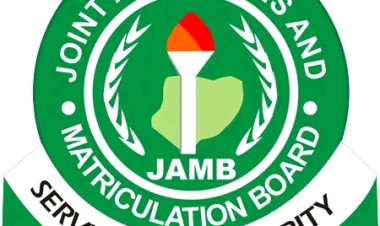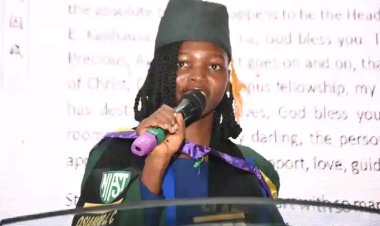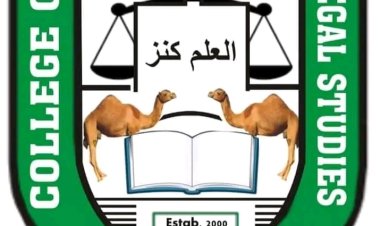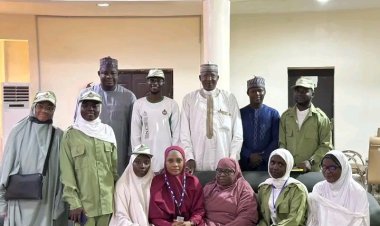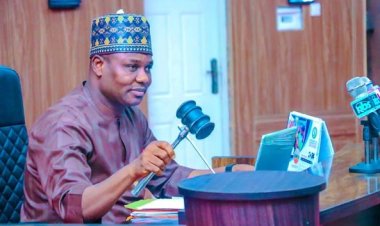FUOTUOKE: VC Emphasizes the Imperative of Transcending Disciplinary Confines at Medical Laboratory Science Workshop
The Vice Chancellor (VC) of the Federal University Otuoke (FUOTUOKE), Professor Teddy Charles Adias has emphasized the imperative of transcending disciplinary confines at medical laboratory science workshop.
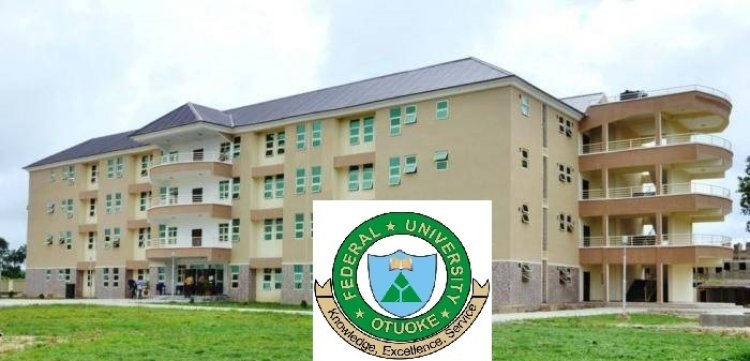
Teaching and non-teaching staff of the Faculty of Medical Laboratory Science, Federal University Otuoke (FUO) experienced a two-day immersion into the realms of Faculty administration and creativity in medical research and grant writing from Tuesday, February 13 to Wednesday, February 14, 2024.
Read also: FUOTUOKE Revised Academic Calendar for 2022/2023/2024 Sessions
The workshop, a collaborative effort between the Faculty of Medical Laboratory Science and the Directorate of Institutional Advancement and Consultancy, aimed to elevate the expertise of teaching staff in these critical domains.
Hosted at the auditorium of the Faculty of Medical Laboratory Science, West Campus, FUO, the event featured the Vice Chancellor, Professor Teddy Charles Adias, as the keynote speaker, who delved into the intricacies of university system under the captivating theme, “The New Contemporary University System.”
Professor Adias emphasized the imperative of transcending disciplinary confines and staying attuned to the latest scientific advancements as essential facets of the responsibilities incumbent upon teaching staff within the modern university system.
He reiterated the essential nature of conducting workshops, highlighting their crucial role in optimizing the Faculty’s performance within the university system. According to him, these workshops are indispensable for positioning the Faculty to operate at its maximum potential within the academic environment.

Professor (Mrs) Iheoma Adekunle, the Director of Institutional Advancement and Consultancy at FUO, who spoke on the first day, gave insights on the intricate art of steering a Faculty towards success. Unveiling the theme of “Effective Administration of the Faculty,” she painted a vivid picture of a Dean as the visionary shepherd, entrusted with the holistic well-being of both the pedagogical and administrative realms.
In her depiction, a Dean is not merely a title but a stewardship role requiring a rare blend of result-oriented prowess and unwavering target-driven determination. Professor Adekunle emphasized that a Dean’s responsibilities extend beyond the confines of traditional academia; they are entrusted with the care of the entire Faculty ecosystem, encompassing both teaching and non-teaching staff.
She also underscored the imperative of a Dean’s crystallized philosophy, mission, and vision, emphasizing the need for these guiding principles to be boldly etched as core values from the very inception. Professor Adekunle illuminated the importance of this clarity, asserting that it lays the foundation for a Dean to effectively execute their mandate and orchestrate the flourishing trajectory of the academic haven they preside over.

In her discourse, Professor Iheoma Adekunle explained to the workshop attendees that while the traditional duties of a Dean encompass Faculty Board meetings, Senate deliberations, and the meticulous processing of minutes, the true essence lies in venturing beyond the conventional. She fervently advocated for a broader scope, emphasizing the indispensable roles of fostering capacity building initiatives, forging startup partnerships, and nurturing robust research and development endeavours. Indeed, she painted a vibrant canvas wherein a Dean’s stewardship extends far beyond bureaucratic obligations, into the realm of dynamic innovation and transformative leadership.
Read also: FUOTUOKE Empowers Teaching Staff with TETFund Special Intervention Workshop
The dynamic lineup of Day-one workshop facilitators (where expertise meets flair), included Dr. Chilaka C. Francis, the Sub-Dean of the Faculty of Social Sciences, who unraveled the art of “Organizing an Efficient Department,” while Miss Eucharia C. Elema, Faculty Officer of the Faculty of Science, guided attendees through the intricacies of “Coordinating an Efficient and Effective Office of the Faculty Officer.” Mr. Odio Abiobele, the tech-savvy Acting Director of the ICT Unit, joined this stellar cast to demystify “The Management of Student Data.” Last but certainly not least, Professor Tatfeng Y. Mirabeau shared insights on “Skills in Medical Writing and Medical Writing Software and Aids.”
On Wednesday, February 14, 2024. the second day of the workshop, the Vice Chancellor Professor Teddy Charles Adias spoke on the theme “Appropriate Statistics for Medical Research,” exploring the realm of medical research, and how the selection and presentation of statistics play a pivotal role in elucidating the intricacies of scientific findings, stating that the judicious choice of statistical methods not only enhances the credibility of research but also provides a nuanced understanding of complex health-related phenomena.

Crucial to this process, according the Professor Adias, is the utilization of appropriate measures of central tendency, such as means or medians, which offer a succinct summary of data distribution. Precision is paramount, and confidence intervals can serve as valuable tools, conveying the range within which true population parameters are likely to fall.
Moreover, statistical significance tests, when wielded judiciously, help discern whether observed effects are genuine or mere chance occurrences. P-values, though commonly employed, necessitate thoughtful interpretation to avoid misrepresentation of findings. Striking a balance between statistical significance and clinical relevance is key, as statistically significant results may not always translate into meaningful outcomes for patients.
Professor Adias averred that in the ever-evolving landscape of medical research, longitudinal studies and regression analyses offer a dynamic perspective, allowing researchers to explore temporal trends and elucidate the intricate relationships between variables. Effect sizes, often overshadowed by p-values, merit attention for their capacity to convey the magnitude of observed effects, thereby enriching the depth of scientific interpretation.
The esteemed Vice Chancellor also emphasized that the artful incorporation of appropriate statistical methods in medical research not only fortifies the rigour of scientific enquiry but also facilitates a nuanced comprehension of the multifaceted facets of health and disease. An adept application of statistical finesse is, therefore, imperative for advancing our understanding of medical phenomena and, ultimately, improving patient outcomes.
The second day of the workshop featured several esteemed presenters, each contributing expertise to diverse facets of medical research and education. Professor Ologhaguo provided valuable insights into the “Ethics of Medical Research,” emphasizing the importance of ethical considerations in scientific investigations.
Professor (Mrs.) Iheoma M. Adekunle delved into the “Science of Grant Writing and Acquisition,” guiding participants on the intricacies of securing funding for their research endeavours. Professor Tatfeng Y. Mirabeau shared expertise on “Skills in Medical Writing and Medical Writing Software and Aids,” highlighting effective techniques for conveying medical information and utilizing relevant tools. Lastly, Professor Ebimeowei Etebu addressed “Modern Pedagogical Skills in Medical Teaching,” offering insights into contemporary methods to enhance the teaching of medical concepts. Together, these distinguished facilitators enriched the workshop with their diverse perspectives and comprehensive coverage of essential topics.
Credit: FUO Media

